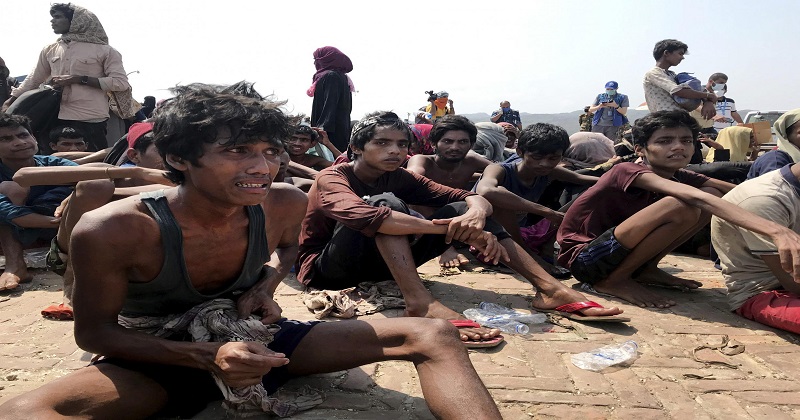
At least 30 Rohingya refugees died at sea, and almost 400 were rescued from a boat which had been adrift for over two months as they attempted to sail to safety in Malaysia, survivors have reported.
The 396 surviving refugees, who were mostly women and children, had set sail in a fishing trawler from the camps in Cox’s Bazar in Bangladesh in mid-February.
The refugee camp, one of the largest in the world, is home to over a million Rohingya who fled over the border from Myanmar, starting in August 2017, following a brutal army crackdown that the UN has described both as ethnic cleaning and akin to genocide.
Mohammad, a 40-year-old refugee who was among those rescued from the boat with his three family members, described the horror of being on the ship for 58 days. He said they had reached Malaysia, but been turned away.
“Within a week or 10 days after setting sail we reached close to Malaysia,” Mohammad told the Guardian from the quarantine centre where he was being held. “But the Malaysian coast guard stopped our trawler. They would not let us get closer to the land. Our boatmen made several attempts to bypass the coast guard patrol and reach the shore. But, all attempts by our boatmen failed. We knew that because of the coronavirus outbreak in Malaysia the authorities became unusually strict and did not allow us to land there.”
He said the boat had lingered close to the Malaysian shore for several days to try to sneak ashore, but without success, and turned back for Bangladesh.
“We ran short of food and water,” said Mohammad. “Many children and women were crying. Around 30 people on the boat died because of getting no food and water and and we all started losing hope as the bodies of other refugees had to be thrown into the sea.”
It took the coastguard three days to locate the boat in the Bay of Bengal after a tip-off. According to the coastguard, there were 182 women, 150 men and 64 children rescued from the boat who were severely malnourished, dehydrated and could barely walk when they landed. “They were at sea for about two months and were starving,” said Bangladesh coastguard spokesman Lieutenant Shah Zia Rahman.
The United Nations High Commissioner for Refugees confirmed in a statement that “around 30 or more refugees may have passed away at sea as the boat ran out of food, water and fuel during a nearly two months long journey at sea.”

Post Your Comments